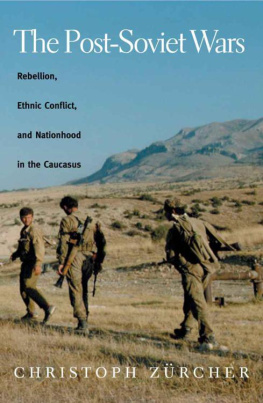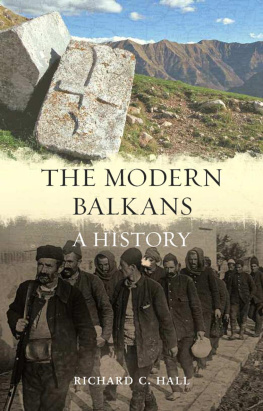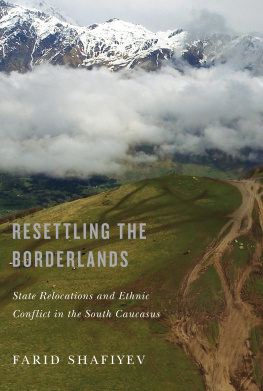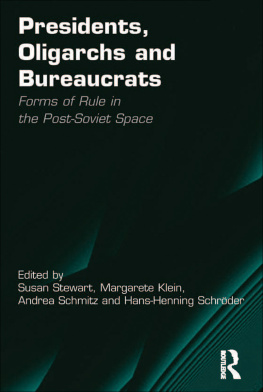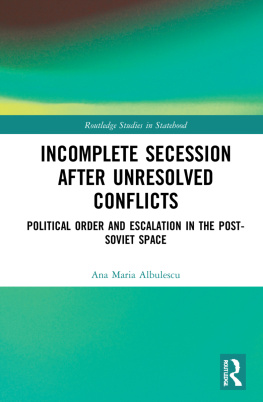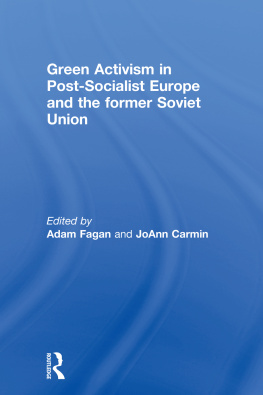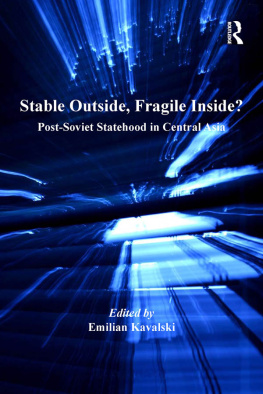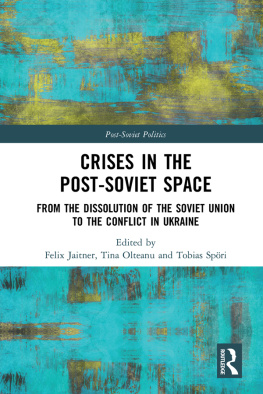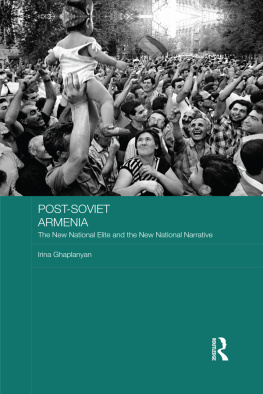The Post-Soviet Wars
The Post-Soviet Wars
Rebellion, Ethnic Conflict, and Nationhood in the Caucasus
Christoph Zrcher

NEW YORK UNIVERSITY PRESS
New York and London
www.nyupress.org
2007 by New York University
All rights reserved
Library of Congress Cataloging-in-Publication Data
Zrcher, Christoph.
The post-Soviet wars : rebellion, ethnic conflict, and nationhood in
the Caucasus / Christoph Zrcher.
p. cm.
Includes bibliographical references and index.
ISBN-13: 978-0-8147-9709-9 (cloth : alk. paper)
ISBN-10: 0-8147-9709-1 (cloth : alk. paper)
1. Ethnic conflictCaucasusCase studies. 2. CaucasusEthnic
relationsHistory20th century. 3. CaucasusPolitics and
government20th century. 4. Political violenceCaucasusCase
studies. I. Title. II. Title: Rebellion, ethnic conflict, and nationhood
in the Caucasus.
DK509.Z87 2007
947.5086dc22 2007023003
New York University Press books are printed on acid-free paper, and their binding materials are chosen for strength and durability.
Manufactured in the United States of America
10 9 8 7 6 5 4 3 2 1
To Anna, Max, and Carla
Contents
Preface
This book examines the causes of internal wars in the aftermath of the Soviet Union. Between 1988 and 1997, there were seven internal wars on the territory of the former Soviet Union. Five of them are examined in this book: the war between Armenians and Azerbaijanis over the territory of Nagorny-Karabakh, the wars between Georgia and its breakaway regions of Abkhazia and South Ossetia, the civil war within Georgia, and Russias war in breakaway Chechnya.
Every case of war is distinct and follows its specific trajectory shaped by a unique confluence of grievances, perceptions, and, above all, opportunities. But all cases of war covered in this book also subscribe to a common script, which is clearly shaped by the unique historical structures of the Soviet systemand by a historically unique event, the collapse of the Soviet Empire. Crucial elements of this script are the collapse of the Soviet system, which increased the incentives and opportunities for nationalist elites to capture the state and for nationalist secession; the institutional legacy of Soviet ethnofederalism, which predetermined ethnic cleavages; the lack of state capacities in the newly emerging states, which led to serious commitment problems; the weakness of the elites in the newly independent states, which led them to tolerate or even actively sponsor entrepreneurs of violence; and their failure to reimpose state control over entrepreneurs of violence, which derailed the consolidation of statehood and paved the way for new waves of violence.
The analysis of idiosyncratic features of individual cases of war does not, in the end, make the study of post-Soviet wars relevant, nor does the attempt to contribute to a specific theory of post-Soviet wars, although both are important endeavors in their own right. The study of post-Soviet wars is justified in bringing this important subclass of cases of war to the attention of theorists of internal wars. Hence, the guiding questions that this book seeks to answer are the following: How well are existing theories equipped to explain the onset and trajectories of post-Soviet wars? And, vice versa, how can the study of post-Soviet wars contribute to general theory?
The wars in the former Soviet Union and in former Yugoslavia account for roughly one-third of all internal war since 1989 and for two-thirds of all wars within Europe since 1945. If one accepts that the wars in the former Soviet Union and former Yugoslavia have many similarities, then the sample presented in this book is sufficiently large to make a significant contribution to theories of internal wars. Consequently, an important objective of this book is to help organize a discussion between general theories of internal wars and the lessons that the study of war and peace in the post-Soviet space offers. There is ample material for doing so. Perhaps the most surprising findings emerging from this study are that post-Soviet wars do not support two of the statistically best established claims of general conflict theory: the association between mountainous terrain and the advent of internal war, and the association between a low level of economic development and the advent of war. Caucasian wars emerged in societies that were not poor, neither within the Soviet Union nor on a global average. They emerged in mountainous terrain, but the now common assumption that mountains facilitate the military resistance of rebels is not supported.
The study of post-Soviet wars also offers valuable insights into the causal mechanisms that link newly independent states, state weakness, and the occurrence of internal wars. All Caucasian polities suffered from a sudden loss of state capacities, but some were able to reconfigure statehood and avoid violence. As I argue in this book, the explanation for success or failure is to be found in the cleavage structures of elites and in the degree of internal fragmentation of the new nationalist elites. Ethnic demography is often said to be among the most salient risk factors making societies prone to internal violence. The cases in this book support the importance of ethnic demography, but they also offer insights as to the circumstances under which ethnic demography increases the risk of internal wars and when it does not. Last, the study of post-Soviet wars holds unexpected lessons with regard to the financing (and, hence, the feasibility) of rebel organizations. Rebel movements in the Caucasus financed themselves by various means, and the support of the population in what were, in the beginning, popular wars, played a significant role. But all organizers of violence actually accumulated their start-up capital in the shadow and criminal economies of the Soviet Union.
I developed these arguments over several years. During this time, I was blessed with many sharp-eyed, thoughtful, and supportive friends and colleagues, most of whom offered their comments and advice for this project in its various stages. Earlier drafts of this book immensely profited by the comments of Andrea Genest. For their support, I am grateful to Holm Sundhaussen, Thomas Risse, and the late Georg Elwert at the Free University of Berlin. Graham Stack translated an earlier version of this book into English, and Erica Richardson did the style and language editing of the final manuscript. I am most grateful to both. In the Caucasus, the help and support of Gayane Novikova, Arif Yunusof, Gaga Nizheradze, and Armine Alexanian is gratefully acknowledged. They were the most knowledgeable colleagues and gate-openers one could imagine. Without the help of Alexander Orlov, travels to Chechnya would have been much harder and my insights much smaller. I owe a debt of gratitude to Paul Collier and Nicholas Sambanis; my own research has benefited much from collaborating with them within the World Banks research project on the economics of civil wars, crime, and violence. Pavel Baev, Georgi Derluguian, Ron Suny, Gail Lapidus, and Jonathan Wheatley have all at various stages generously shared their impressive knowledge of the Caucasus with me.
I gratefully acknowledge financial assistance from the Heinrich Bll Foundation, Berlin, which sponsored an initial workshop on the topic in 1999. Much of the subsequent research for this book was made possible by a generous grant from the Volkswagen-Stiftung. This book reached the final stage of completion at Stanfords Center for Democracy, Development and the Rule of Law, and I thank Steve Krasner, Gerhard Casper, Thomas Risse, and Kathryn Stoner-Weiss for making this possible. The Alexander von Humboldt Foundation generously supported my stay at Stanford with a Fedeor-Lynen grant. I am deeply grateful to CDDRLs staff and faculty for providing the most inspiring and productive atmosphere one can possibly imagine. At Stanford, Amichai Magen was the best of friends, and our occasional skiing and the many espressos kept me on track while finishing the manuscript.
Next page
